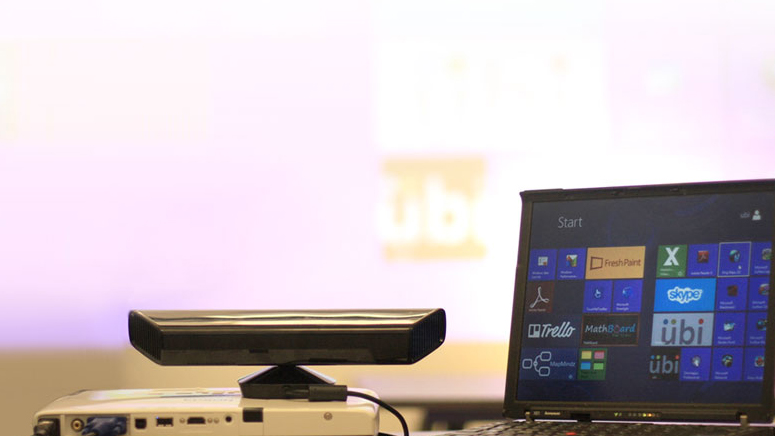Kinect strays from Xbox nest - brings touchscreen to any surface
Ubi launches to prove it's got the touch

Sign up for breaking news, reviews, opinion, top tech deals, and more.
You are now subscribed
Your newsletter sign-up was successful
If, like us, you constantly prod your desk or a nearby white wall in the hope that one day it will magically transform into a touchscreen device, then Ubi is what you have been waiting for.
Created by Seattle startup Ubi Interactive, and originally announced back in August 2012, Ubi's software uses Kinect to turn any surface into a touchscreen device and has been officially released.
Microsoft has given its blessing to the technology, partnering with the company, which hopes that this level of hands-on interactivity will give a much-needed boost to your average PowerPoint presentation.
For the software to work, you will need to link up a projector and Kinect to any PC and the Ubi software will then calibrate your environment and let you get touchy feely.
Extending the possibilities
In a blog post CEO of Ubi, Anup Chathoth, explained: "By making it possible to turn any surface into a touch screen, we eliminate the need for screen hardware and thereby reduce the cost and extend the possibilities of enabling interactive displays in places where they were not previously feasible – such as on walls in public spaces.
"Our technology has implications of revolutionising the way people live their lives on a global level."
The technology may well revolutionise but it also has to undo the years of work parents put in telling their children that touching any surface with mucky fingers is a very bad thing, regardless of the new-fangled Kinect-toting technology that is beamed on to said surface.
Sign up to the TechRadar Pro newsletter to get all the top news, opinion, features and guidance your business needs to succeed!
If you want to try out Ubi, then prices start from $149 – this will give you a 45-inch surface to prod at.
Marc Chacksfield is the Editor In Chief, Shortlist.com at DC Thomson. He started out life as a movie writer for numerous (now defunct) magazines and soon found himself online - editing a gaggle of gadget sites, including TechRadar, Digital Camera World and Tom's Guide UK. At Shortlist you'll find him mostly writing about movies and tech, so no change there then.
